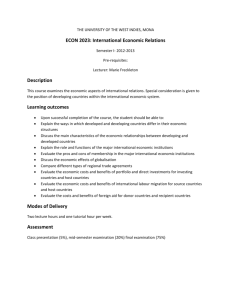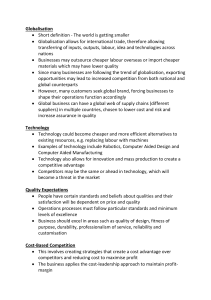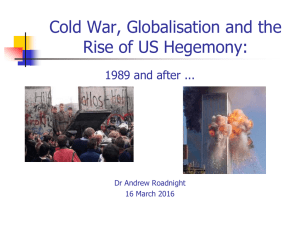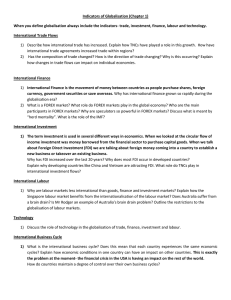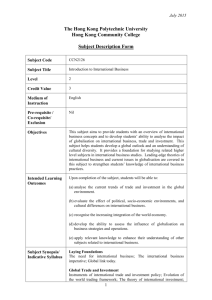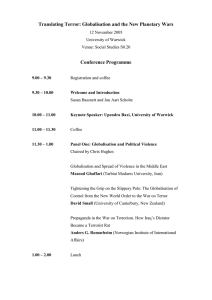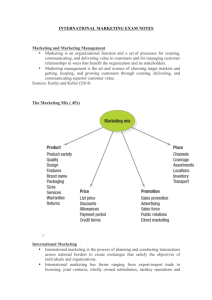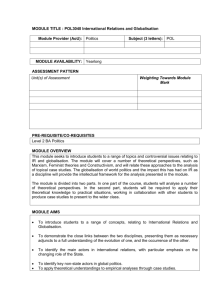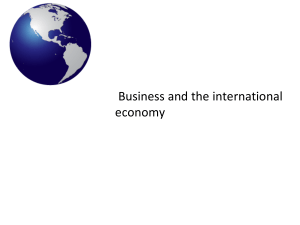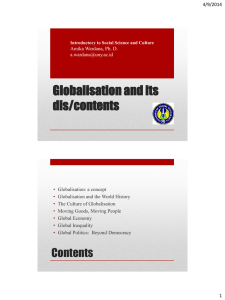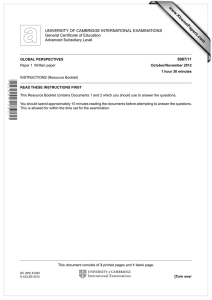Ingen bildrubrik
advertisement
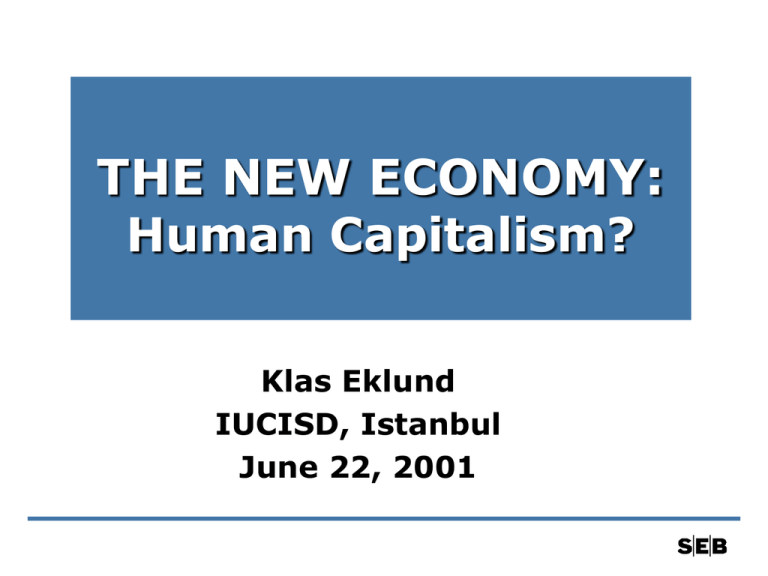
THE NEW ECONOMY: Human Capitalism? Klas Eklund IUCISD, Istanbul June 22, 2001 WHAT IS THE NEW ECONOMY? • New technology and globalisation • Sounder macro policies • Economies work better, old relations are stretched • but “old” theories can still be used • The new economy is not only IT, certainly not dot.coms • Even though stock market bubble burst the underlying changes remain IT - AN INDUSTRIAL REVOLUTION • The third, after steam and electrical/ internal combustion engines • Great effects when the new technology conquers more sectors. Decades before fully ripened • No idea of future effects or where they will come • The IT sector in a narrow sense is not very important GLOBALISATION • Trade expansion, tariff reduction, direct investments • Free capital flows, international capital market • New technology changes trade-off between quality and quantity Result: Stiffer competition, faster productivity growth, larger markets, higher speed, cultural integration - and less room for national economic policy “THE GOLDEN STRAITJACKET” • Low inflation policy, more independent central banks • Stricter fiscal policies: Rules and targets • Deregulation • International co-operation and rules • Straighten up and join the club - or pay a price to stay outside! STRUCTURES CONVERGE • • • • • Collapse of the planned economies Problems of the “Scandinavian model” Problems of the “Asian model” Successes of the “Anglo-Saxon model” Mobile tax bases imply pressure of convergence of taxes - capital, labour, consumption • One major currency in Europe. Long-term trend toward fewer currencies? MACRO EFFECTS • Higher growth... – New technique, developmental blocks, clusters of innovations – Investment and capital rationalisation – Higher productivity - at last • …without high inflation – Transparency & stiffer competition – Empowered consumers – Lower transaction & distribution costs • Difficult question: What is permanent and what is transitory? THERE WILL BE PAIN • Gains: Productivity, growth, benefits to consumers • But: Old structures threatened – Creative destruction – Regional, sector-wise and individual effects – New gulfs and inequalities - which old-fashioned redistribution policies cannot handle • Unemployment effects depend on flexibility of labour market • Bubbles and crashes will follow • Risk of political backlash? UNDEMOCRATIC? • Globalisation opens closed societies, unseats dictators! • Helps women’s liberation • More narrow room for stabilisation policy – Restrictions are not new – But they work faster now • Globalisation does not prohibit national politicians from making decisions – but costs become more visible – the political tool-box becomes less efficient • The alternative? That politicians have the right/power to set all prices and rates? • What is the market: An external force - or all of us? “HUMAN CAPITALISM”? • New economy threatens old structures • Human capital rules – – – – The new economy is meritocratic Anti-racist, anti-clerical, anti-chauvinist! Human capital rules first through competence then through ownership • Old class structures and gulfs change character – Traditional labour/capital division still exists and spreads to new countries – but becomes less important in the ”core” countries and in leading industries NEW POLITICS • Communication is swifter – Easier to find each other – Lower costs • Politics changes shape – – – – – Flatter organisations also in politics? Speed! Virtual and global debates Electronic polling - and voting? Traditional media loses some power • Public sector efficiency enhanced – Better information – Lower costs PROBLEMS • The digital divide – But must new media be available to all before anybody is allowed to use them? – Don’t let the god become enemy of the best • A new class society? “Netocracy”? • Subgroups instead of open discussion? • Too rapid communication - no room for thought? – A high frequency reality cannot only have a low frequency political system CHALLENGES • Old parties, structures and activities are threatened – they must renew policies and methods • But this is not a threat to democracy - rather a chance to develop democracy! • The real problems – Medialisation – Stale parties and meetings – Unattractive to young people can partly be addressed by IT
